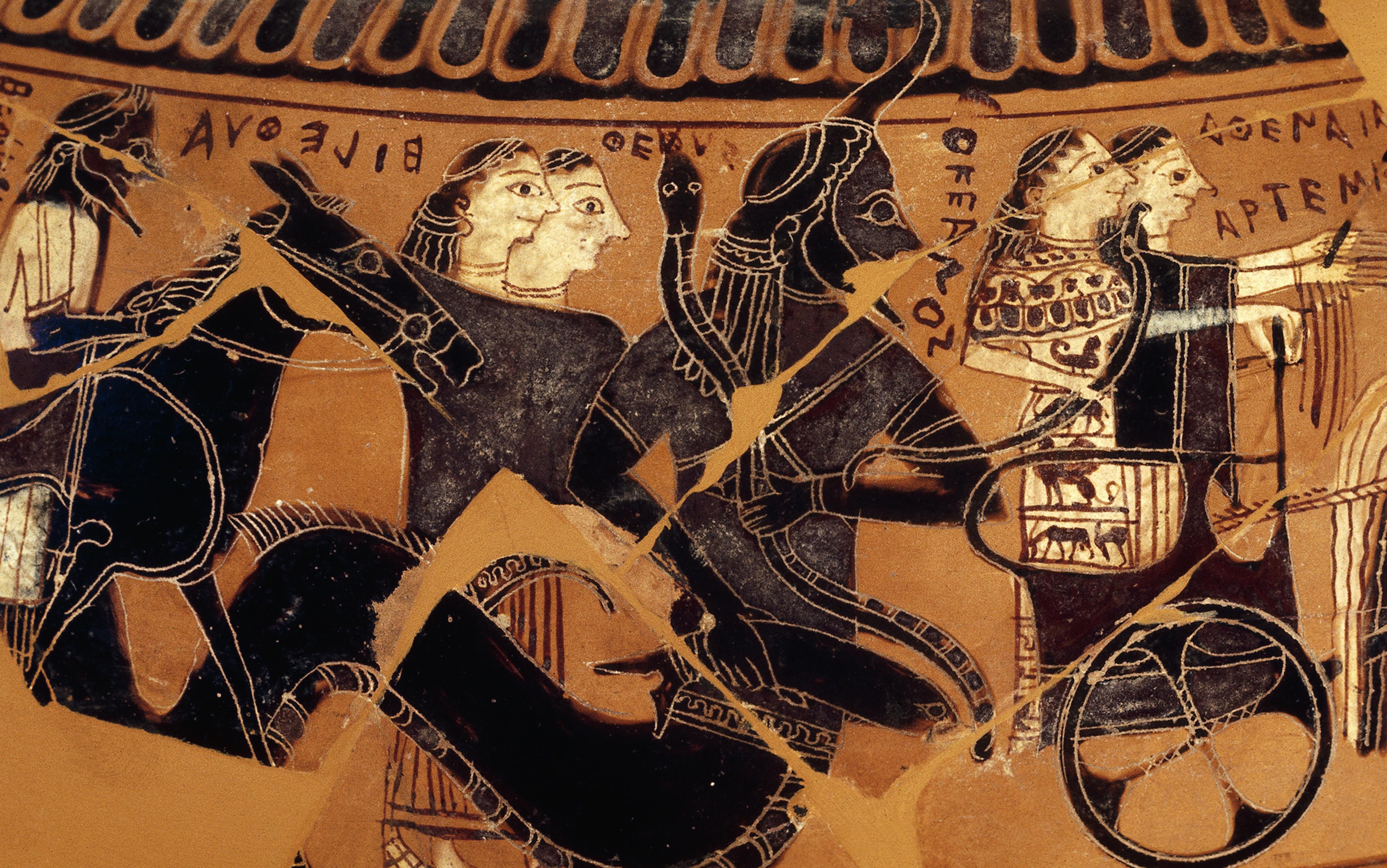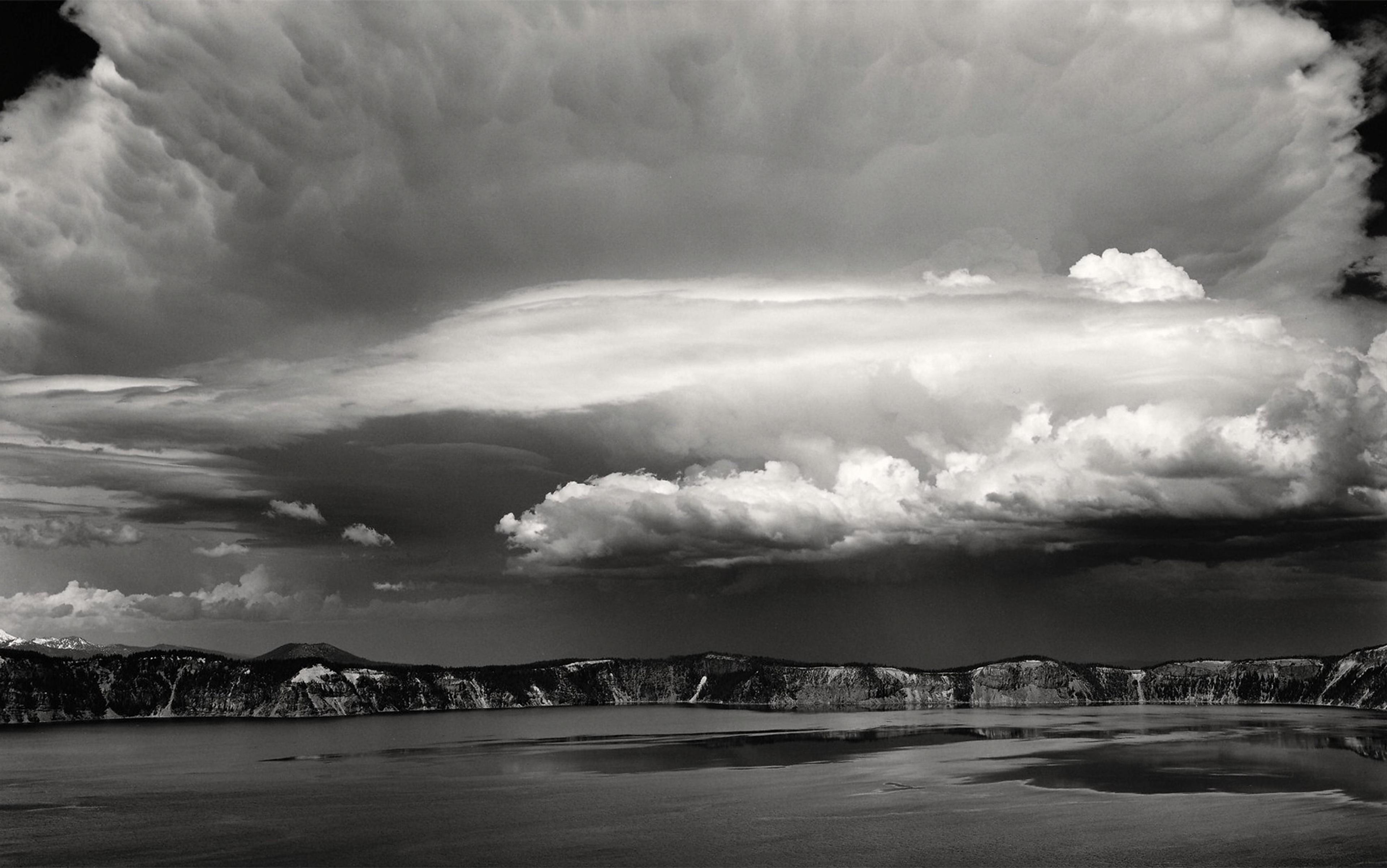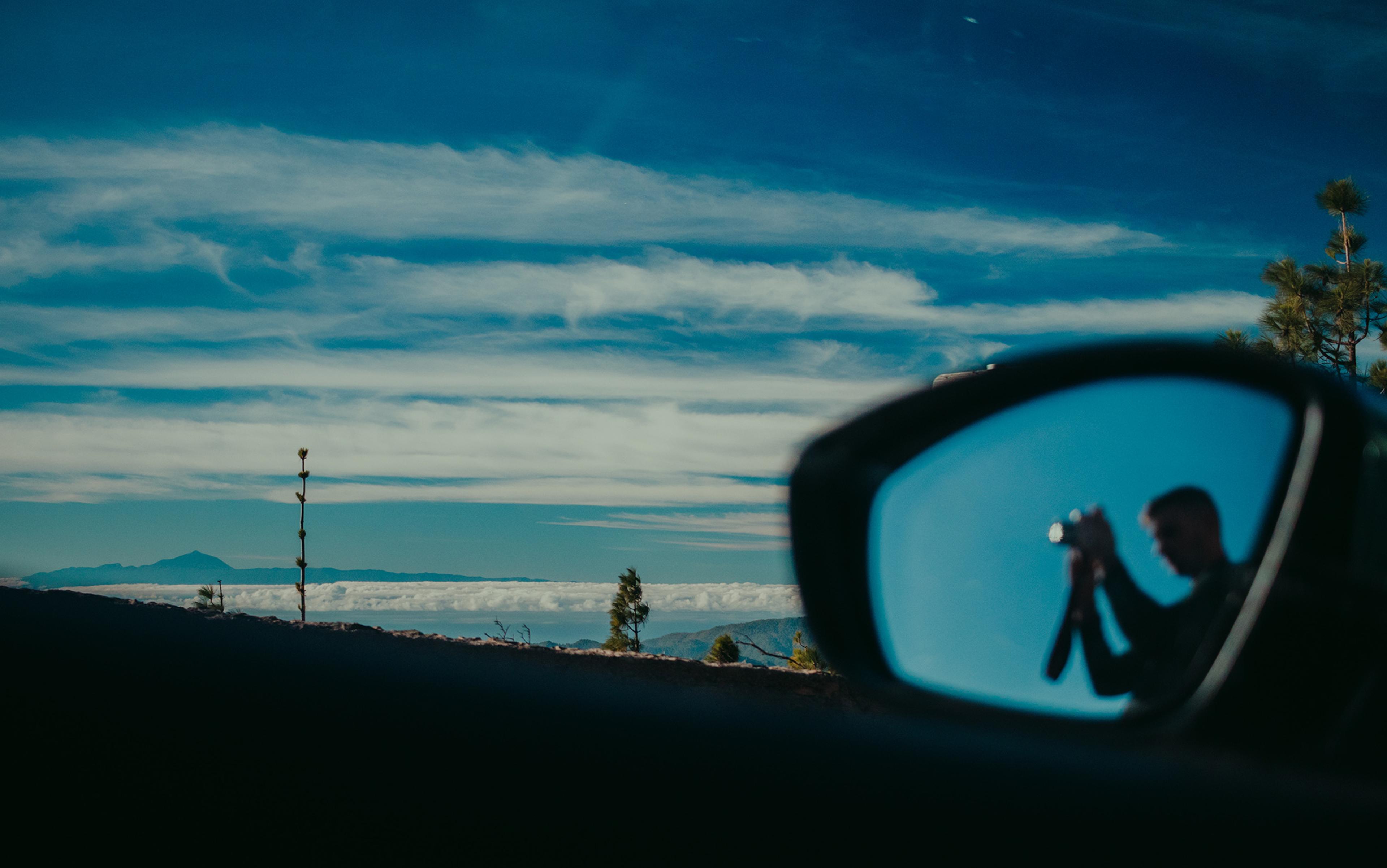The shore: that immeasurable fringe that will exist as long as sea and land do. At waterfronts, we relish gently splashing waters at the edge of glassy expanses, where powerful currents move unfathomable volumes at speed. At waterfronts, we dread waves stirred by the wind and coming at an inexorable beat from invisible distances.
The shore has always evoked deep emotions of detachment, exposure and homecoming for our terrestrial selves seeking at sea adventure, betterment, power, profit and sustenance. No surprise that the arts, science, technology and accounts of everyday endeavours have devoted to it words and numbers beyond survey. Here, we turn to some literature come down to us from Greek antiquity and to a little physics held in common with those predecessors. Scrolling documents that survived history will tell us of some who feared shipwrecks and longed for a safe return; and of others who wondered how waves deliver the motion harvested from the wind to the land. In the shore we will recognise a fascination for instability in deed and in metaphor; the quests for shelter from harm and for sound knowledge; and perpetual laughter that language has forgotten.
Searching for connections that could still be with us across the ages is a fourfold challenge, however. Ahead lie words liable to uncertainty of provenance; meanings of a disappeared language; meanings that modern minds might reluctantly embrace in mismatching words; and a world of events that has kept on boggling minds ever since.
Dear reader, fear not. The occasional text in Greek script, always in parentheses, can be passed over. The translations are few and my own. Stock physics primarily conveys the belief that rules of nature have stood while humankind has been making sense of it one way or another. Would you dissent from that belief, then what remains will speak of the unchanged drive to navigate the world around us and decide what to do with it.
Who would run voluntarily across so endlessly much salty water?
(τίς δ’ ἂν ἑκὼν τοσσόνδε διαδράμοι ἁλμυρὸν ὕδωρ ἄσπετον)
– from the Odyssey
Let’s first do a fast rewind of 2,800 years or more. No hearing or eyesight support for the elderly, no wristwatches, no thermometers, no electricity, no engines, no plastics, no paracetamol, no three-day weather forecast – and many more such privations for us moderns. Iron was to rise above bronze, though. And, in the teeth of technological poverty, memories were by and large better trained than ours. Let’s look at Odysseus’ celebrated homecoming.
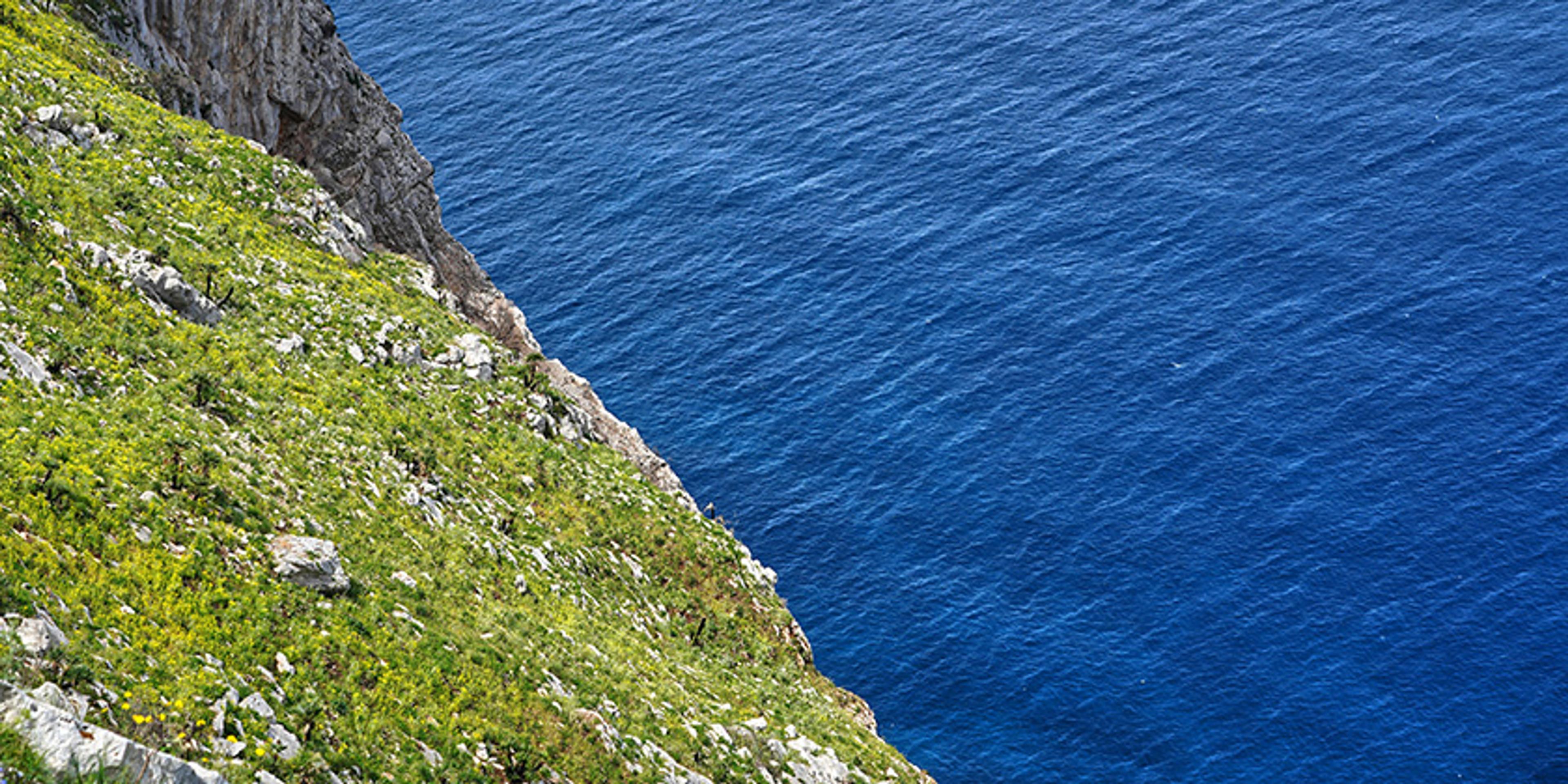
Photo by Jens Aber/Unsplash
Being a collective work, the verses of the Odyssey kept alive in the oral tradition much know-how and many cautionary tales about surviving in the world. Most of its fifth book is about sailing heavy seas and making landfall safely. Six marine scenes glimpse the stakes of sailing away and back as that culture felt them. As happens between Poseidon and Odysseus, the lord of the seas hates a sailor.
On Zeus’ injunction, the nymph Calypso reluctantly lets a homesick Odysseus go. She provides him with prime raw materials to build a raft, sustenance and fine clothes for the journey, some loving parting, and a fair tailwind. Odysseus equips his raft craftily with plentiful features, including a railing of shrubs to fence off the wave splash. Wide awake at sea for a row of uneventful days, he eventually makes sight of land. And all hell on the water breaks loose.
Odysseus spots land on the horizon once again from the crest of a helping wave
The wayward immortal gets at the homesick mortal. Poseidon, just returned from a leisurely stay in Africa, is angered at having been sidestepped when his fellow gods cleared Odysseus’ homeward route. He excites winds and waves from all quarters, generating what we would call a multiple cross sea, a serious difficulty even for modern vessels. A few big waves impart mighty blows. A garlanded warrior, Odysseus dourly rates as despicable the death by drowning decreed upon him (νῦν δέ με λευγαλέῳ θανάτῳ εἵμαρτο ἁλῶναι).
There is benevolence in the divine, though. Moved by pity, the sea-goddess Ino offers Odysseus a sacred cloth that will protect him from fatigue and fear like a magical life jacket. Conditions apply: he must undress first, jump overboard and return the cloth once safe on dry land. After another wave shatters Odysseus’ raft and reluctance, the swimming begins. Conveniently, Poseidon withdraws, appeased by so much of Odysseus’ distress. Athena, Odysseus’ patroness, gives a forward direction to the waves by shutting down all winds but one: ‘she stirred up the stiff northern wind and the waves broke ahead’ (ὦρσε δ’ ἐπὶ κραιπνὸν βορέην, πρὸ δ ὲ κύματ’ ἔαξεν). The wind eventually settles and Odysseus spots land on the horizon once again from the crest of a helping wave. At last the storm is over, but things are not going swimmingly yet.
The nearing of the shore is the next predicament. Odysseus hears the roar of the waves crashing on a jagged promontory. To no avail does he seek ways to set foot on dry land (νῆχε δ’ ἐπειγόμενος ποσὶν ἠπείρου ἐπιβῆναι) and wade out of the grey sea (ἔκβασις οὔ πῃ φαίνεθ’ ἁλὸς πολιοῖο θύραζε). The seabed around the cliffs is too deep to stand on both feet (οὔ πως ἔστι πόδεσσι | στήμεναι ἀμφοτέροισι καὶ ἐκφυγέειν κακότητα). Specifically, he longs for some approach that is harboured and stricken by waves either parallel to the shore or aslant, the translation depending on subtleties that will challenge us later (ἤν που ἐφεύρω | ἠϊόνας τε παραπλῆγας λιμένας τε θαλάσσης). While he ponders his odds against the cliffs and against Poseidon’s ocean-riding monsters and storms, a treacherous billow dashes him against a rock. He manages to cling to it but the backwash drags him harshly to the open sea again.
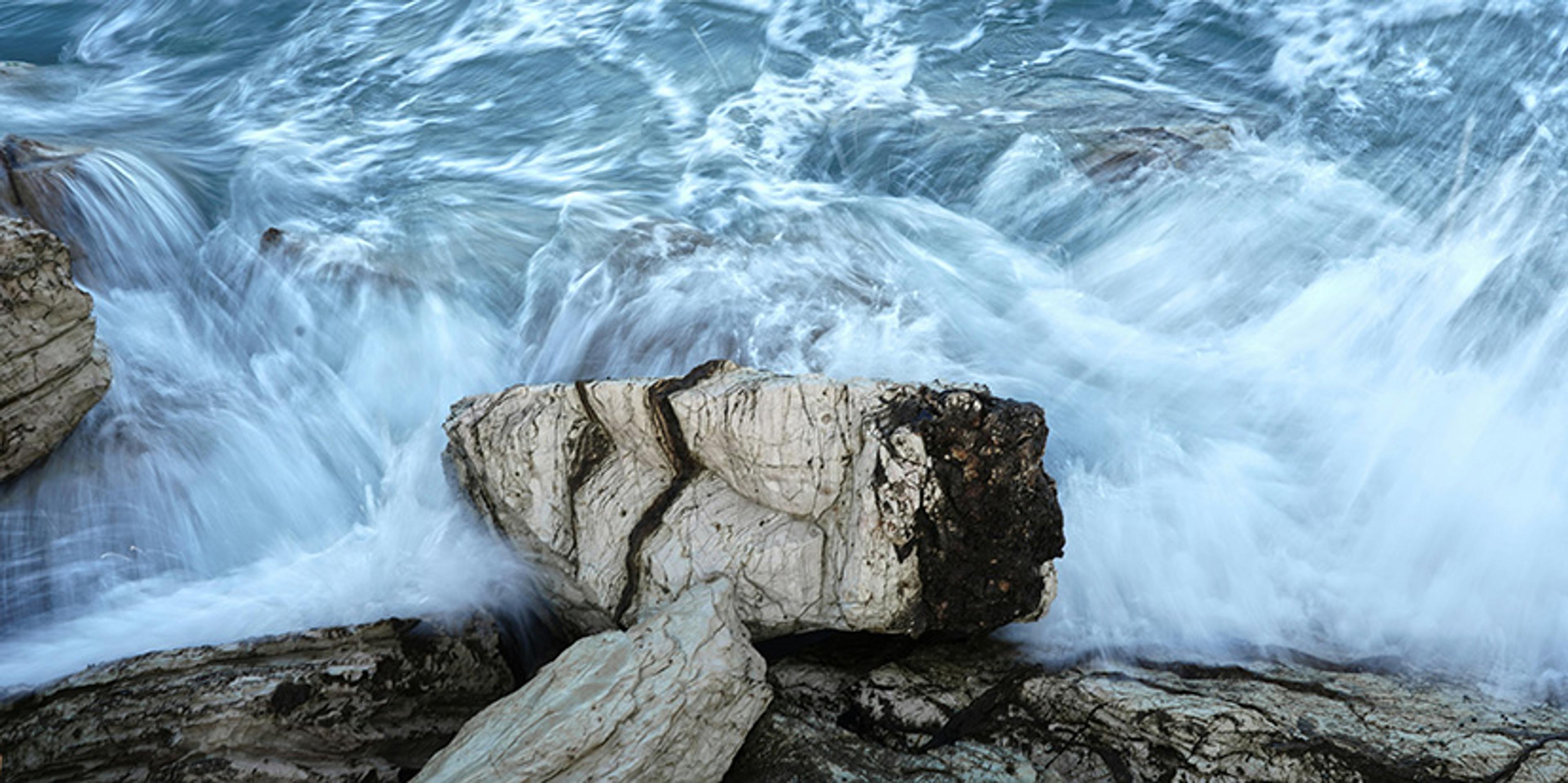
Photo by Jens Aber/Unsplash
Odysseus starts over. He swims out along the shore to avoid being snatched by the billows again (νῆχε παρέξ, ἐς γαῖαν ὁρώμενος, εἴ που ἐφεύροι | ἠϊόνας τε παραπλῆγας λιμένας τε θαλάσσης). He then senses the stream of a river, and the approach looks free from rocks and is sheltered from the wind. His prayer for admittance to safety is heard by the river-god:
As Odysseus spoke, the river immediately stopped its own current, held the wave, made the sea ahead calm for him, and saved him into the out-flowing river.
(ὣς φάθ’, ὁ δ’ αὐτίκα παῦσεν ἑὸν ῥόον, ἔσχε δὲ κῦμα, | πρόσθε δέ οἱ ποίησε γαλήνην, τὸν δ’ ἐσάωσεν | ἐς ποταμοῦ προχοάς.)
So Odysseus swims into the river mouth without overpowering its stream, an exhausting effort, similar to swimming against a rip current.
At long last, naked, battered, bruised, swollen and gasping, Odysseus crawls on all fours onto dry land. He duly returns Ino’s cloth by dropping it into the river, and kisses the ground. Only after finding cover from the nightly chill and wild beasts can he fall asleep with the blessing of Athena. While his odyssey continues for 19 more books, we stay by the word choices of Book 5 in search of insights into seas and shores.
Several words denoted the sea. Thálassa (θάλασσα) was the sea both generically as well as, prosaically, the water bunging up one’s airways. Pélagos (πέλαγος) and póntos (πόντος) were specifically the open high sea. Háls (salt, ἅλς) and hygrá (the moist, ὑγρά) were generic names by association. The sea of Odyssey 5 is barren (atrýgetos, ἀτρύγετος) but also abounding in fish (ichthyóeis, ἰχθυόεις); divine (dîos, δῖος); frightening and tormenting (deinós, δεινός; argaléos, ἀργαλέος); grey, or perhaps hoary owing to foam streaks (poliós, πολιός); hazy (eeroeidés, ἠεροειδής); violet-hued (ioeidés, ἰοειδής); and, famously, looking like wine (oînops, οἶνοψ). The colours of the sea in ancient Greece have been an Aeon essay of their own.
A single word denoted ‘waves’. The term kŷma (κῦμα) was associated with a broad notion of swelling that included pregnancy. Apart from ripples, the ancient Greek language did not distinguish the shorter, slower and steeper waves directly generated by the wind, and the longer, faster and milder ones that travel away from the area of generation – the modern’s ‘swell’ proper. The waves of Odyssey 5 are most often big (mégas, μέγας), and also black (mélas, μέλας), solid (pegós, πηγός) and tall (makrós, μακρός). The overturning of waves has a place in the verses when the gale makes them roll over (μέγα κῦμα κυλίνδων) and when an overhanging wave (katerephés, κατηρεφής) shatters Odysseus’ raft.
And several nouns denote the sea’s great counterpart, the land. Specifically, eión (ἠϊών) was the shore, the longed-for threshold of precariousness. Odysseus at sea understood very well that his survival amounted to an exit to walk on. What he wanted stands in a two-for-one figure of speech that pairs a shore hit somehow by the waves (ἠϊόνας τε παραπλῆγας) and a sheltered sea (λιμένας τε θαλάσσης). There, though, the translation runs into a stumbling block or a stepping stone.
The very verses validate that favourable waves make landfall parallel to the shoreline
The compound structure of the modifier paraplêgas (παραπλῆγας) hides which circumstances made shores (eiónas, ἠϊόνας) favourable to landfall. Its second part, plêgas, relates to fits of hitting and striking, which waves do. Its first part is the preposition/adverb pará (παρά). This expressed side-to-side arrangements of things with a variety that is ambiguous for our purposes. On the one hand, pará could indicate objects keeping that arrangement in space or time – think of the senses of ‘along’ and ‘abreast’ and of the loanword ‘parallel’. On the other hand, it could stress the coming to or parting from it – think of ‘across’ and ‘aslant’; for example, in ancient Greek, both paránoia (παράνοια) and paraplexía (παραπληξία) meant madness through that idea of getting ‘off one’s rocker/trolley’. Back to the shore, did the Odyssey inform us that safer waves approached the shore frontally and parallel or, rather, obliquely and aslant? The venerable Liddell-Scott-Jones dictionary tells us ‘aslant’.
A sure thing is the need to survive a danger fundamentally unchanged across the ages. As we all would, Odysseus stayed clear of the sudden breakers that had just dashed him on a rock. He started over and swam on, proceeding along and out, paréx (παρέξ), as anyone should. And since paréx is a compound word featuring pará, in all likelihood the coastal pará meant ‘along’ rather than ‘aslant’. So, never mind the dictionary, within so close a reach the very verses validate that favourable waves make landfall parallel to the shoreline.
On second thought, though, Odysseus also longed for the sheltered waters of a harbour, the second piece in the two-for-one figure of speech above (λιμένας τε θαλάσσης). And something must shelter that harbour, perhaps the promontory whose rocks Odysseus just escaped. And a headland shelters a nearby shore from waves rolling into it aslant more likely than frontally. So, slanted waves too hint at safety, consistently with the scenery, idealised though it can be. The ‘aslant’ sense of pará is credible too.
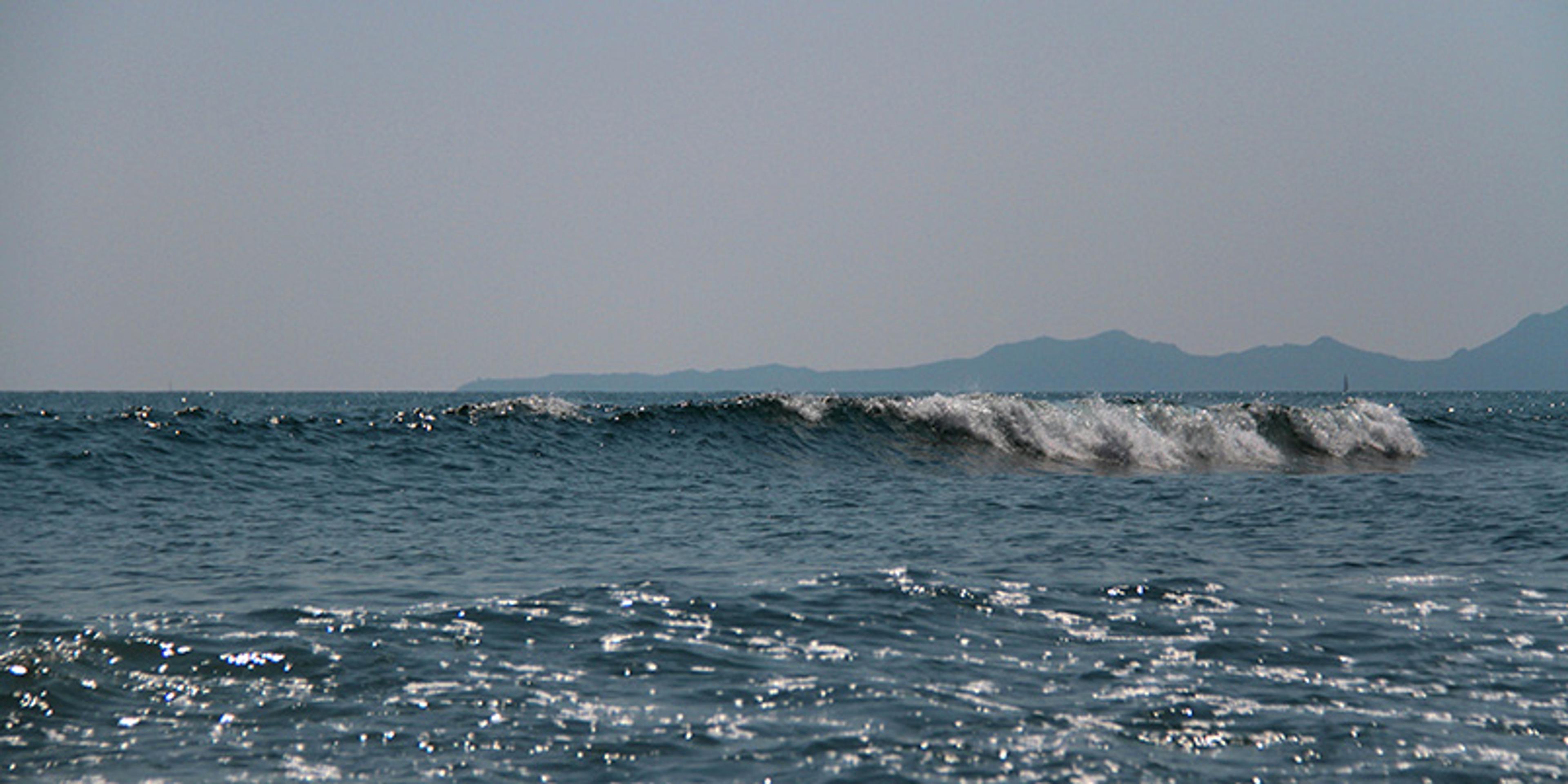
Photo by Jens Aber/Unsplash
On a third pass of thinking, terrestrial Odysseus insisted on walking ashore. As a matter of fact, disordered waves in deep water are often seen to break parallel to a shore, and a seabed sloping landwards is the clever operator there. In a natural process called refraction, the advance of waves slows down in waters that grow shallower. This slowing down bends towards the shore whatever direction the waves had in deeper waters. As a matter of lore, from that change of wavescape any sea-savvy person could make out the formless boundary telling a nearshore approach from the high sea, póntos/pélagos, traversed by waves from any quarter. In effect, this process of bending starts when the water oscillating below the wave surface grazes the seabed. That, in turn, begs us to appreciate as a rule of fact that, beneath the evident bobbing and rolling, the water motion vanishes deep down enough. Regardless of our having in hand a validated theory for wave refraction, a gradually sloping shore does give a reassuring measure of organisation to the waves coming from far off. The capricious billows slapping the rocks in deep waters featured in the verses as the contrary to that gentler way out. So, did the perplexing paraplêgas hint at a walkable broad zone of surf? Why not! The ‘along’ sense of pará sounds credible once again.
For the ancient Greeks, the verses that puzzle us had either an ambiguity they lived with or no ambiguity
The single word paraplêgas got us locked in a corner case. The entries of the dictionaries did not reassure us firmly that ‘X stands for Y rather than Z’. At face value, the ambiguity of the little word pará seemed to entail a small change of interpretation. Yet, this small change called for extensive elaborations on the greater scenery. Contextualisation, checks of linguistic consistency and physics-inspired inference did not confirm ‘from X follows Y rather than Z’. There is no bad guy either: neither translation impairs the coherence of the narrative and realistic expectations. There is not even a penalty for leaving things indistinct: since waves with a slanted direction of approach may hit a shore all along, melding both interpretations of pará paints a realistic picture. We give in to indifference, for linguistic ambiguity has morphed into undecidability.
For all the timeless rolling of waves, a concrete risk of overthinking lurks in the commitment to the textual evidence from 2,800 years back. For the ancient Greeks, the verses that puzzle us had either an ambiguity they lived with or no ambiguity. In the former case, it is sufficient to pinpoint where that ambiguity stood, and let it be. Our attempt at fixing distinctions with a difference has played out against the odds of the latter case, actually. In seeking special circumstances in which waves could aid landfall, we tried the odds of translating a defunct language and stumbled on half a word. So, let’s be content to savour the timelessness of seas and shores like the ancient singer-storytellers, at a small loss of clarity. There was a shore, there were waves pounding that shore.
Conceivably, the verses of the Odyssey had evolved for centuries by slow degrees until any cognitive dissonance with everyday experiences was felt to be unimportant. Survivors could have contributed their stories as swimmers, fishers, merchants, exiles and warriors, while untaught hearers could have been forewarned about the dangers at sea. Sailing is a life-or-death thing. If the epic in the Odyssey served as a primer to cope with the unexpected, then the guidance for those in distress at sea could have been: save your skin doing as the hero Odysseus did. When sailing in cross seas, keep your wits about you and pray that it ends before you end up drowned. When swimming, keep out and along the shore, keep clear of rocks, do not swim against a streaming river, spot sheltered waters first; an unsheltered shore will do you better than cliffs. Expect fatigue and fear. Kiss the ground if you make it. You’ll be frail, don’t lower your guard in apparent safety. Be thankful that some gods have protected you. That awe at having made it alive ashore, too, could be fundamentally unchanged across the ages, to the memory of those lost at sea.
And we ran to the sea
On the journey on the sea
Too many passengers died
They got lost to the sea
A boat was carrying 90 passengers
Only 30 were rescued
And the rest died
Today we are alive
The sea is not a place to pass by
The sea is not a road
Oh, but today we’re alive
– from Gianfranco Rosi, Fuocoammare
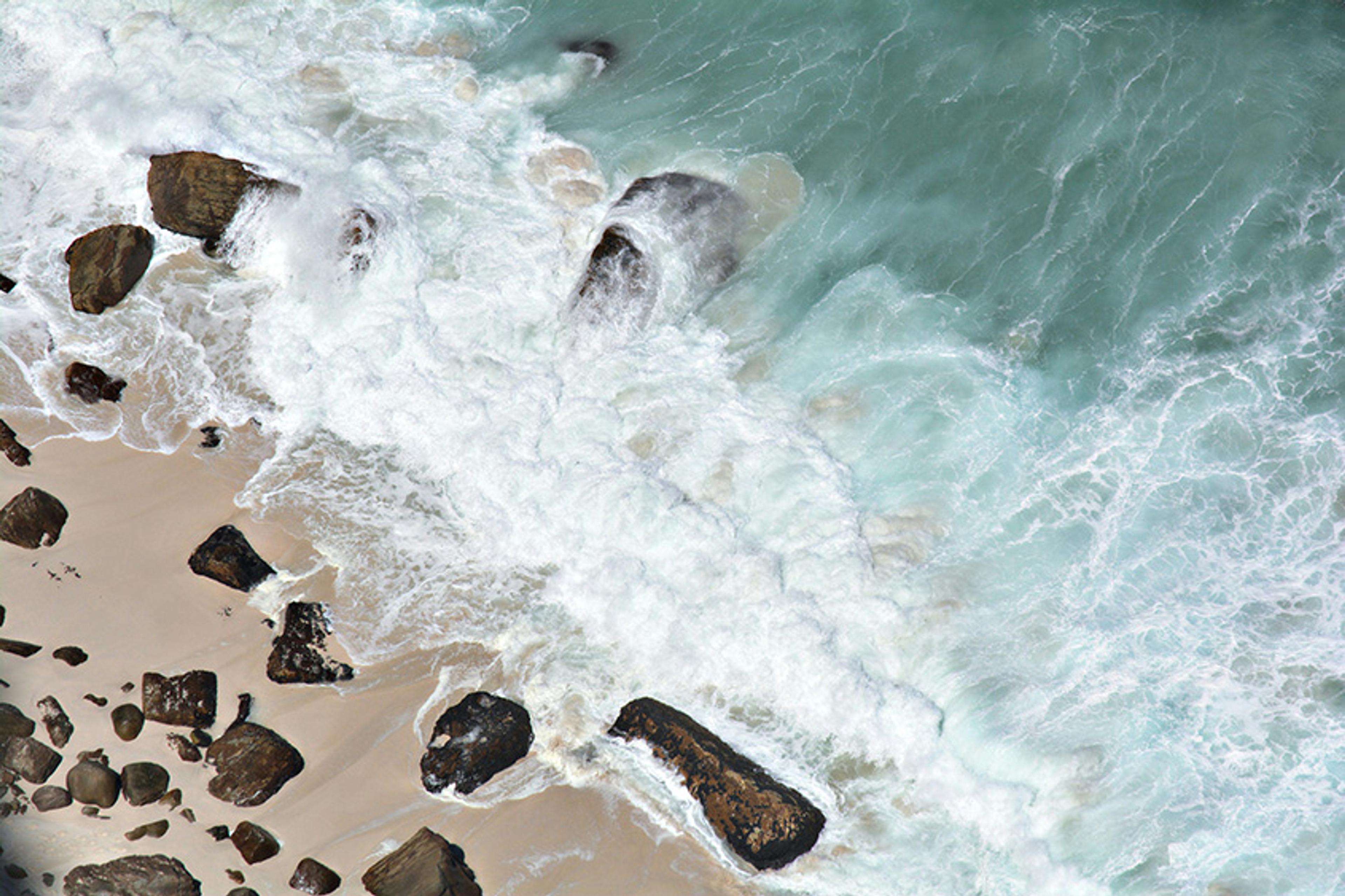
Photo by Bert B/Unsplash
A caress lies down on the rough crests of the ocean …
A caress lies down on my face which interposes its veil
Una carezza si corica sulle creste agitate dell’oceano …
Una carezza si corica sul mio viso che interpone il suo velo
– from the song ‘Fingendo la Poesia’ (2003) by Marlene Kuntz
Let’s fast-forward to about 2,300 years ago. The foundation of many overseas settlements has proven Odysseus’ seaborne outlook true. But seldom do the affairs of city-states advance peaceably. Communities are torn by factions and civil strife. Athens and Sparta twice defeat an alliance of Persians and other Greeks. Athens destroys the Persian fleet at Salamis, rules the waves for some 70 years, and loses its own fleet at Syracuse. Sparta defeats Athens. Thebes defeats Sparta. The Macedonians defeat them all. Alexander the Great gets even with the Persians, pushing his army eastward to unimaginable distances. In Macedon-ruled Athens, Alexander’s tutor, Aristotle, opens the ‘Lyceum institute for advanced study’, as Paul Cartledge puts it in Ancient Greece (2011). Its members, dubbed Peripatetics, systematically review and reshape the knowledge of humankind and the outside world. When Alexander passes away too soon, Aristotle promptly flees an unsafe city. The mantle of Lyceum director passes to the deputy Theophrastus for a 35-year tenure across the period 320-280 BCE.
Meanwhile, the Odyssey has become an evergreen saga recited in an elevated archaic dialect. The corpus of poetry and prose has since bloomed in size and sophistication. Aided by such a versatile language, works of lyric, comedy, tragedy, oratory, historiography and philosophy grow countless. Alas, the ensuing 2,300 years take a heavy toll on humans and documents alike, and that vast trove is largely lost to us. While history granted preservation to the Odyssey, such favours were denied to the Lyceum library. The whirlpool of oblivion sank a good four-fifths of Aristotle’s works and most of Theophrastus’. Their works were badly preserved or lost early on. Moreover, antiquity did not value copyrights. The greater the authors’ standing, such as Aristotle’s and Theophrastus’, the stronger the appeal of editing their work to allure new readers. Lastly, copyists duplicated manuscripts by hand imperfectly. So, annotations, misreads, omissions and oversights could have altered much in the originals. And the writing in the Lyceum discussing sea waves stands out for its difficulty. It is called the Problems, an ominous-enough title for a work with puzzling fragments aplenty.
The Problems gathered many miscellaneous topics discussed at the Lyceum, at some point reworked into questions and answers, and grouped not so orderly within thematic chapters. Its table of contents affords suggestions for lottery players, like the disquisitions on waves being numbers 1, 2, 11, 12, 17, 24 and 28 inside Book 23, the chapter on marine matters. It counts as a blessing if a question has an answer, an answer a complete explanation, and an explanation clear reasoning. The original sources could have been accomplished treatises as well as drills for philosophical debates. The attribution of single disquisitions to named Peripatetics is challenging. More in the sense of a potpourri of cut-and-pastes than of the tightly woven fabric of the Odyssey, the Problems too could be regarded as a collective work.
They patched holes and matched edges resorting to first principles abstracted out of experience
A sure thing is that stories of waves were discussed time and time again. Their coming and going, their growing and settling, are dominant and primordial evidence. For all the lost libraries, tacit knowledge of waves was ocean-sized for a sailing folk whose livelihood and safety depended on the sea. The life of waves could also be contemplated mundanely: they could blow waves over a cupful of a hot drink or, sobriety ebbing in a torch-lit party, of wine that sparkled like the sea.
Within a philosophical school attentive to the natural world, then, the sea had to prompt its fair share of questions. A genuine Lyceum research motive could have been: given that something is seen to happen, owing to what does it happen? The Peripatetics gathered knowledge worth believing through empirical investigations. For matters out of their immediate grasp, they patched holes and matched edges resorting to first principles abstracted out of experience. Trademark tenets of the early Lyceum were, for example, the distinction between efficient, final, formal and material causes; natural changes as continual generation and perishing; air, earth, fire and water as the constituents of matter; hot, cold, moist and dry as its qualities. What about the cause of waves?
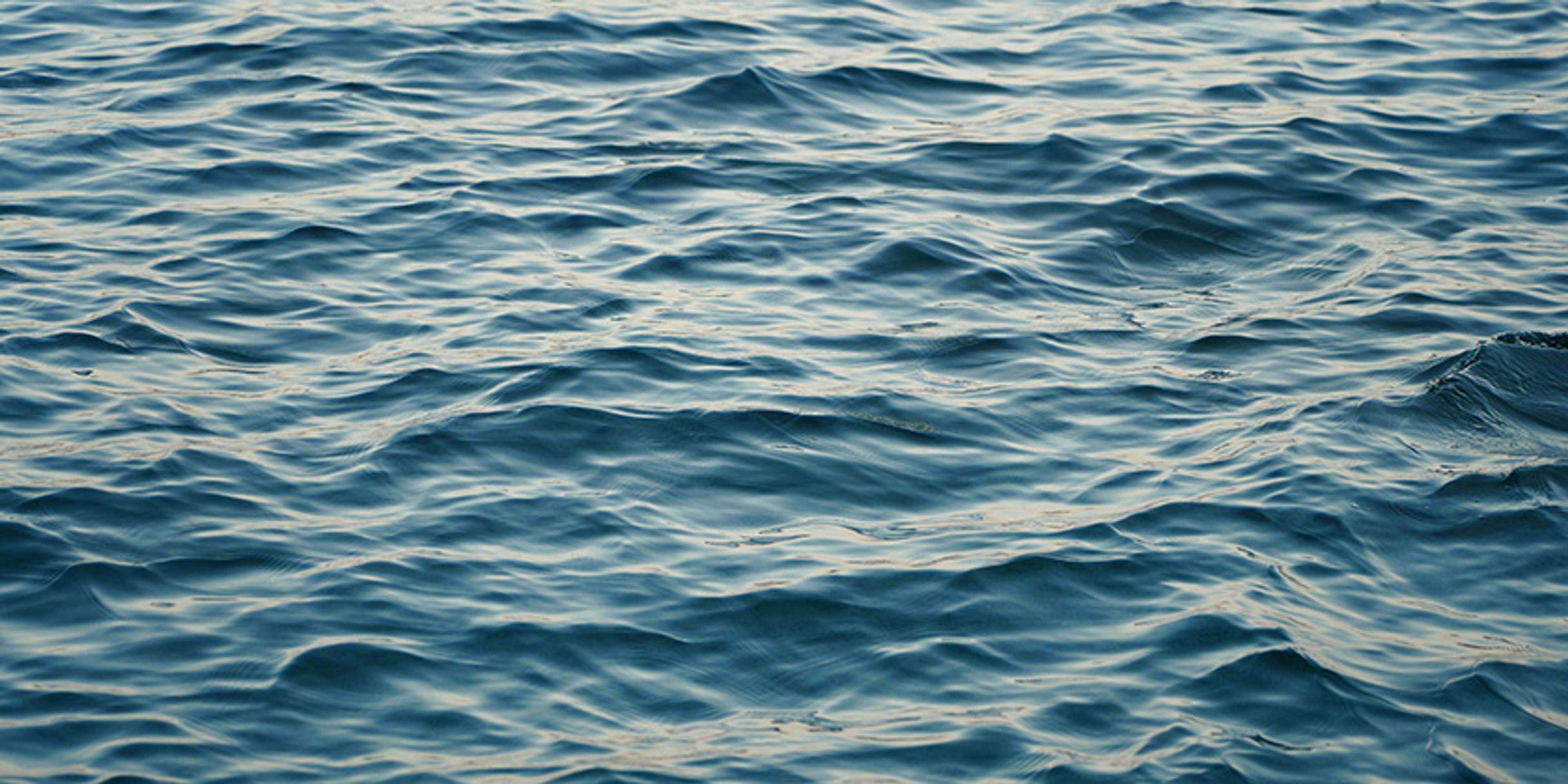
Photo by Jens Aber/Unsplash
Granted that the wind generates waves, Odysseus confronted them long after the storm had ceased. Swell approaches the shore from far off on a windless day too. So, what pushes the waves ahead of the wind? What explains their rolling without it? This was a juicy study case for the Peripatetics keen on causes and effects. In a disquisition in the Problems, wind and waves are first acknowledged not to stop simultaneously (οὐχ ἅμα παύεται τὸ πνεῦμα πνέον καὶ ἡ θάλαττα κυμαίνουσα). Their explanation of swell propagation was that the wind’s initial action takes a seaborne route because nearby waters can set one another in motion faster than the air blows (ἅμα δὲ πνεῖ καὶ τὴν πλησίον θάλατταν κινεῖ, αὕτη δὲ τὴν ἐχομένην … ὑπὸ γὰρ τη̃ς θαλάσσης καὶ οὐχ ὑπὸ του̃ πνεύματος ἡ κίνησις ἡ θάττων του̃ ἀέρος ἡ τη̃ς θαλάττης). That novel causal chain may seem obvious to us. It lacks hints at the looping motion of particles in the top seawater, for example. But that’s surely one step beyond lamenting Poseidon’s whims.
Recognising that the wavy motion vanishes deeper down would have been a substantial challenge in those days. At depths where humans can dive unaided, the ancient Greeks would probably have observed only waves whose motion touches the seabed, for example while swaying sea grass. Also, a swimmer avoids the brunt of waves on the verge of breaking by diving below them. Experiencing the crest’s weight sweeping above one’s body would have been as compelling a validation as walking into stiff wind on land. Plausibly, their baseline belief was that the waviness at sea was some kind of advancing push, persisting down to the seabed, inshore and by extension offshore. And we cannot either hastily exclude that they had not thought of anything else; how not to exclude, actually, that they would have chuckled at the poor mangled texts arrived to us? Respect of textual evidence compels us to not harshly contrive allegations of conceptual shortcomings.
After being generated by wind, offshore waves will not move the water all the way down to the seafloor, but many transformations occur as they roll over shallow shores. The decreasing amount of water underneath them affects the flow motion under the surface, their shape, their advance speed and how they progressively move on. We have touched upon refraction with paraplegâs. For another reason, the valleys between pairs of waves accentuate as the aspect of crests and troughs becomes steeper. As waves get closer to the shore, the crests move faster than the troughs. Eventually, the water atop plunges off the wave base or spills down its face, depending on how steeply the seabed slopes. The onshore breakers are the final act after a journey across the sea’s expanse. The Peripatetics, keen on processes of generation and perishing, had prompts aplenty to pursue an enquiry on the full life cycle of waves. In their descriptions, however, both shore and laughter play an expected and unexpected role respectively.
The water in motion down to the seafloor was certainly too much for air to bring about that wonder of disintegration
Another disquisition in the Problems wonders why waves laugh only in narrow and shallow waters (Διὰ τί τὸ κῦμα οὐκ ἐπιγελᾷ ἐν τοῖς βαθέσι πελάγεσιν ἀλλ’ ἐν τοῖς μικροῖς καὶ βραχέσιν). A perplexity arrests our interpretation, as it did with paraplêgas in Odysseus’ landfall. At face value – pun intended – bouts of laughter may sound odd here. Conveniently, the disquisition itself identifies breakers onshore soon enough, since the laughing wave gets shattered loudly (διὸ θραύεται πατάξαν μᾶλλον). What made words of laughter suited to expressing wave-breaking, then? The onset of laughter can be felt as a wavelike build-up and release of tension. Both laughter and waves give us something to see and hear simultaneously. Loud laughter entails a sudden discomposure similar to the crash and splash of seawater, a snap moment of energy unleashed, which produces brightness and loud noise, as do faces engaged in bouts of laughter. Uniquely, that parallel stands up to the abrupt changes that each undergoes naturally: contrast glittering and plashing ripples with chuckles, and glaring and roaring bellows with guffaws.
Surprisingly, the physics-inspired analogy between breakers and laughter opens up one more route into the meaning of ancient Greek texts. Without recognition of the underwater side of waves, the clever operator behind onshore breaking among the four Peripatetic elements was air, as distinct from the wind that stirs waves. Shallow shores conditioned the readiness of waves to break since only there could air cause the total shattering into spray and foam of small amounts of moving water (τὸ μικρὸν φερόμενον ὕδωρ διαιρεῖται ὑπὸ τοῦ ἀέρος μᾶλλον ἢ τὸ πολύ … ἐν μὲν οὖν τῷ βαθεῖ πολὺ τὸ κινούμενον, ἐν δὲ τῷ βραχεῖ ὀλίγον). Farther offshore, the water in motion down to the seafloor was certainly too much for air to bring about that wonder of disintegration – an intriguing take upon bursts of human laughter, incidentally.
The analogy between sea states and laughter was not Lyceum coinage. In ancient Greek, the terms for simple laughter (gélos, γέλως) and sea calm (galéne, γαλήνη) originated from the same word family – the g and l clue up towards that kinship. For them, associating the absence or mildness of waves with laughing seascapes rang like a recognisable repetition. It evoked a serenity similar to what we might call our ‘smiling landscapes’. After all, we too project an emotion of calmness into our word choice when we say the sea is calm. The linguistic unity behind that analogy was already in the bud in Indo-European, the reconstructed ancestor of ancient Greek, around the 4th millennium BCE, well before the existence of any library that we lost.
Drawing on the natural versatility of human laughter and on the nuances of words for it, in small leaps of imagination the ancient Greek speaker could vividly articulate manifestations of the sea. Pointing at fits of laughter while waves broke could have sparked sympathetic laughter and reinforced that association in mirth. Compound words again conveyed that extension of meaning: the Peripatetics’ epigelân (ἐπιγελα̃ν), literally ‘to laugh up’, recalled social laughter that punctuates speech. The evolving language kept on enhancing an ancestral association with features of detail: the calm sea laughs calmly, and breakers laugh louder at its fringes.
Neither was the analogy between breakers and laughter Lyceum coinage. Aristotle’s and Theophrastus’ master, Plato, was into that linguistic association, for example. In his long dialogue on politics, the Republic, he compares a weighty philosophical discussion to falling into water and swimming on until one is rescued from all that reasoning – a veiled return to Odysseus’ longing for a faraway shore (ἄντε τις εἰς κολυμβήθραν μικρὰν ἐμπέσῃ ἄντε εἰς τὸ μέγιστον πέλαγος μέσον, ὅμως γε νεῖ οὐδὲν ἡ̃ττον … Οὐκοῦν καὶ ἡμῖν νευστέον καὶ πειρατέον σῴζεσθαι ἐκ τοῦ λόγου). Communal upbringing, parity of women and the philosophers’ rule are the three mainstays of the Republic that command careful handling. Bringing forth untenable arguments for them is the gravest failure that their proponent, Socrates, wants to avoid like the brunt of waves flushing him ashore (Του̃το μὲν τοίνυν ἓν ὥσπερ κυ̃μα φω̃μεν διαφεύγειν … ὥστε μὴ παντάπασι κατακλυσθη̃ναι).
While the size of those metaphorical waves ranked with the growing stakes of each topic, in a twist, the third and largest one threatens not just Socrates’ safety but also his reputation. And the task of discharging on him both commonplace discredit and peculiar laughter falls fastidiously on a laughing wave (εἰρήσεται δ’ οὖν, εἰ καὶ μέλλει γέλωτί τε ἀτεχνῶς ὥσπερ κῦμα ἐκγελῶν καὶ ἀδοξίᾳ κατακλύσειν). Wave-laughing expressing wave-breaking cued a fine piece of wordplay here, for the breaker released a flood of laughter precisely because it just had to laugh as it broke. Both the transformation and the dispatch of that Greek wave are Greek laughter. A master of verbal versatility, Plato preferred the compound verb ekgelân (ἐκγελα̃ν), literally ‘to laugh out’, a nuance for spontaneous and uncontainable laughter, as when one is tickled. As appropriate to political discussions, his irreverent billow laughed more raucously than the natural philosophers’.
The more, and the more diverse, the attestations of laughter for waves survived in the records, the sounder that association belonged to everyday language. This is indeed the analysis in the essay ‘Laughing Waves in Ancient Greece’ (2023) in Classical Philology, which I co-authored with Francesco Giuseppe Sirna. In earlier centuries, Aeschylus the tragedian tells of the expanse’s laughter carrying on perpetually to the face of Prometheus in chains. In later centuries, Strabo the encyclopaedist tells of laughing waters off a delta hampering anchorage by breaking like the waves that the lifesaving river held up for Odysseus. Apparently, the ancient Greek waves could laugh into breakers as much as we can break into laughter. With such a line-up of attestations, it is tempting to imagine that, in the shore, the ancient Greeks saw the sea’s mouth where a fringe of breaking waves laughed loudly. After all, we speak of mouths of rivers, as did they. Why shouldn’t the sea have one too?
You may have heard of sea-level rise, tipping points and changes that unfold faster than previously reckoned upon. Regardless, waves will be the makers and breakers – pun intended – of our coasts. Whatever the fate of weather and climate as we know them, on the shore the sea will keep on having its everlasting laugh.
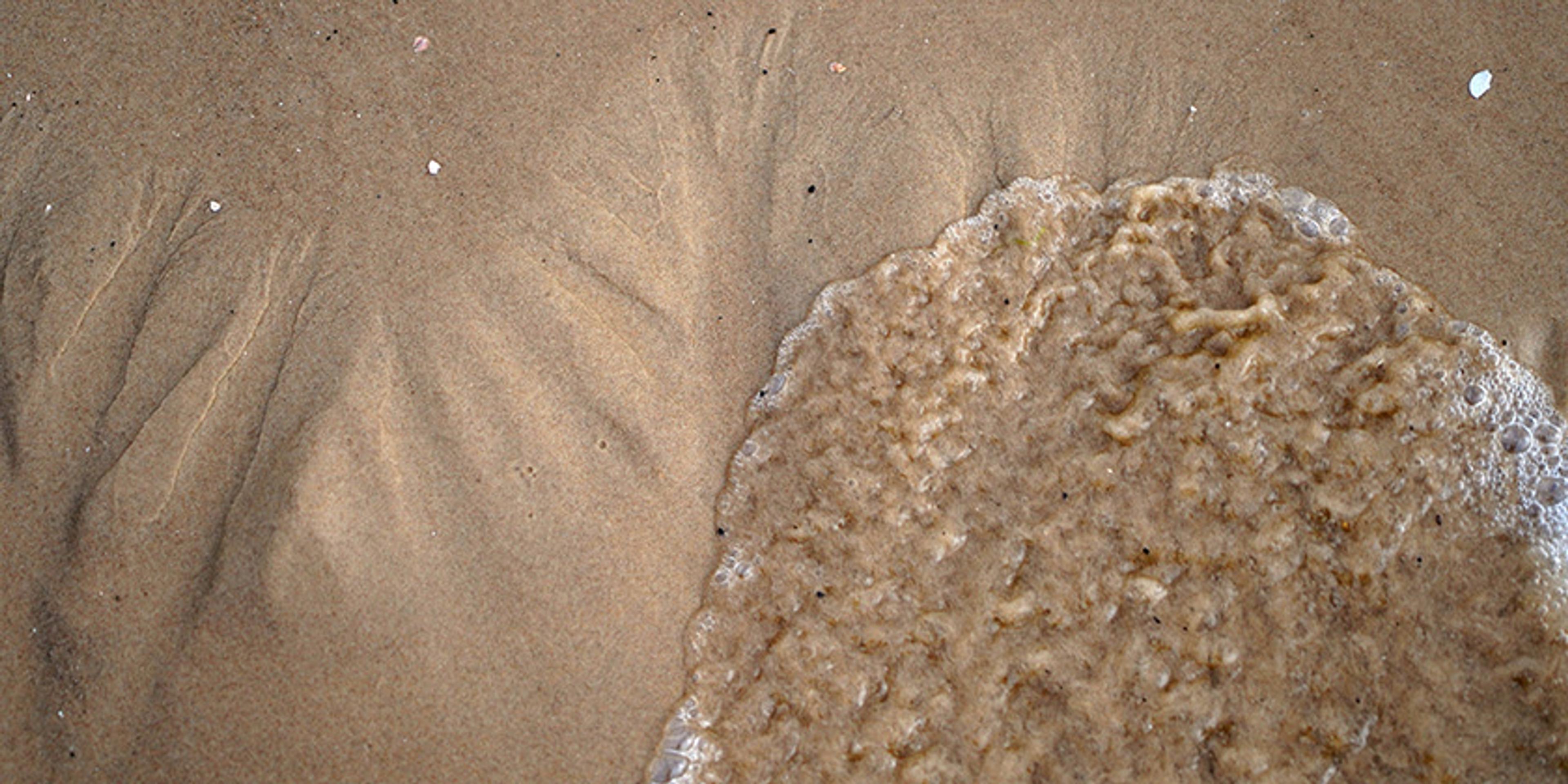
Photo by Jens Aber/Unsplash
To the memory of the beaches already eroded from where my earliest childhood memories of the sea were impressed. To the memory of F G Sirna (1935-2023), over time a teacher, mentor, friend and collaborator, each of these quite a different cup of tea.

